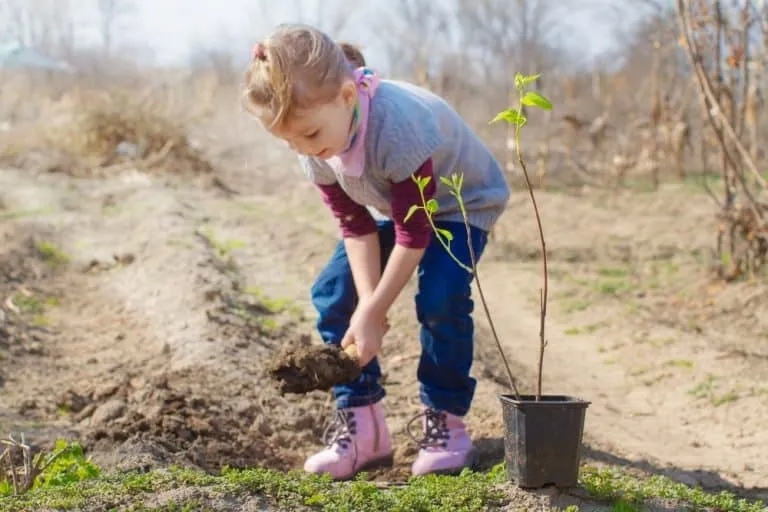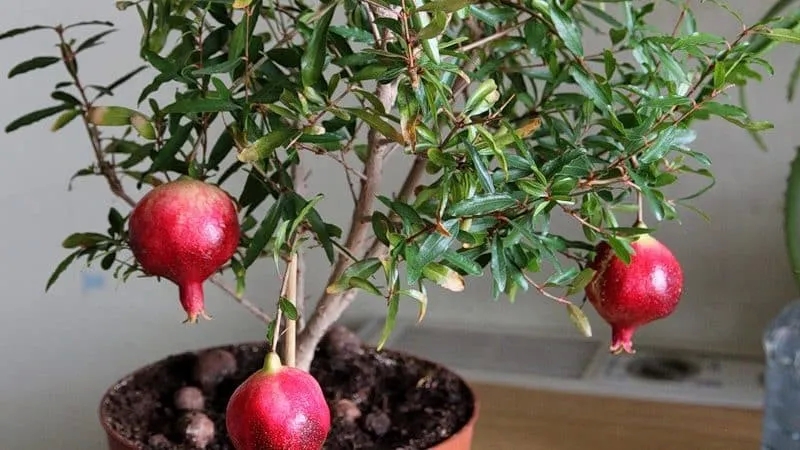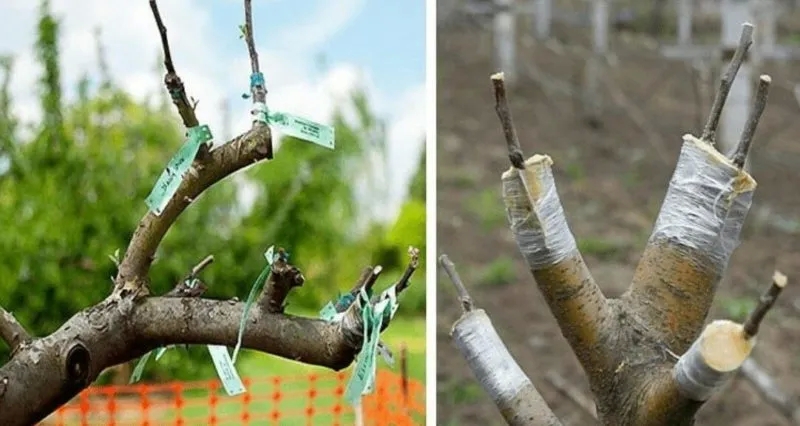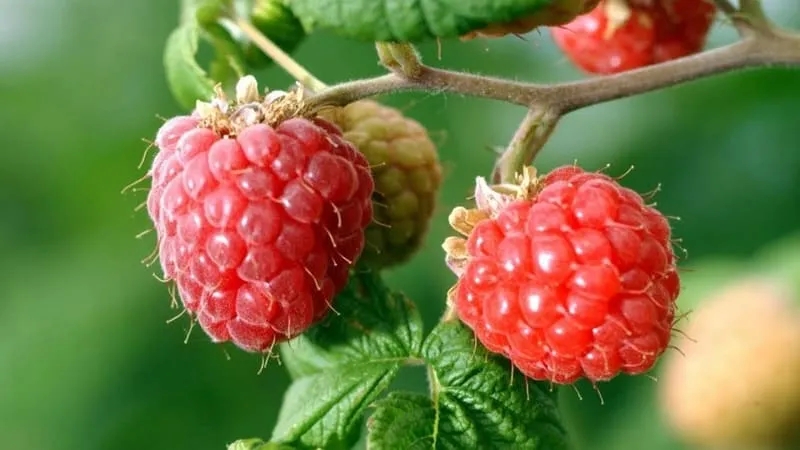Avocado, also known as the alligator pear, is considered one of the best sources of healthy fats. Nutritionists recommend eating half a fruit every day. However, those who buy this exotic fruit regularly know how "temperamental" it can be: one moment it's firm and unripe, and a couple of days later, it becomes soft and starts to rot. In this article, we’ll explain how to store avocados at home and how long they last in the fridge.
Table of contents
How and where to store avocados at home to keep them fresh
Before deciding on a storage method, assess the ripeness of the fruit: a soft, brown avocado is ripe and should not be stored for long. The shelf life of such an avocado is just 24 hours after purchase. More often, you’ll find bright green, firm fruits on the shelves that need some time to ripen.
There are several ways to store alligator pears.
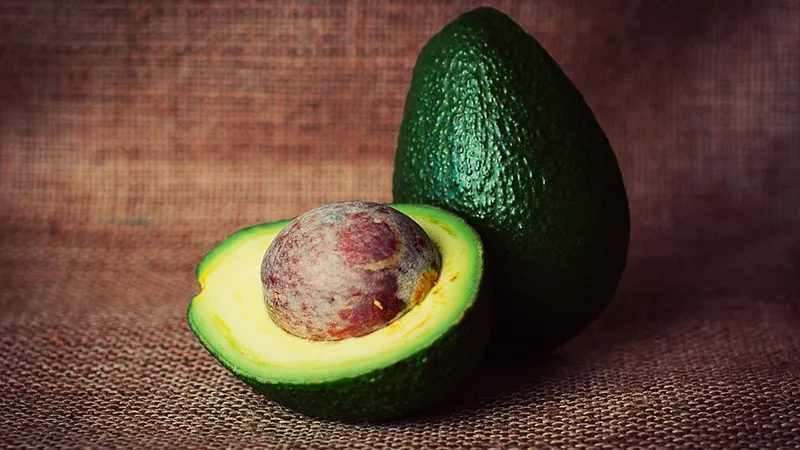
Can you freeze avocados for eating and storage?
Frozen avocados can be stored in the freezer for 4-6 months without losing much of their rich vitamin and mineral content. However, thawing ruins their creamy texture, making them slippery and watery. This makes thawed avocados better suited for smoothies or guacamole rather than sandwiches or salads.
Important! Before freezing, avocados should be fully ripe but not overly soft.
Can you store avocados in the fridge?
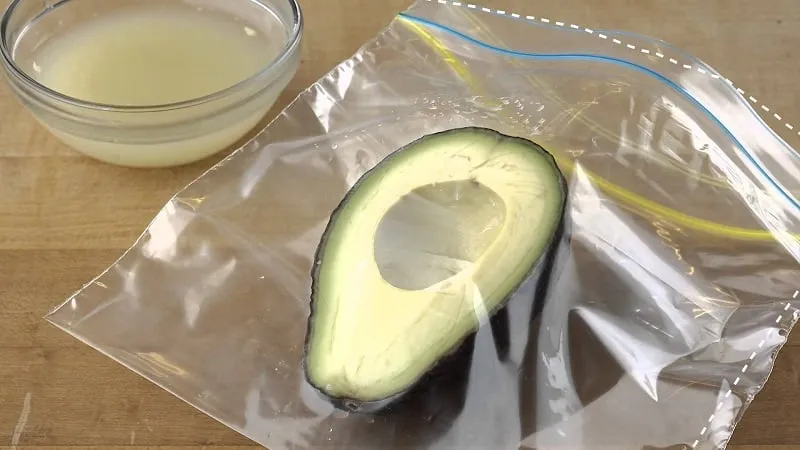
The fridge isn’t the best place to store alligator pears: unripe green fruits won’t ripen properly due to the low temperature and may spoil. Meanwhile, ripe brown avocados shouldn’t be stored at all — they start to wilt and develop black spots within 1-2 days.
How long can avocados last in the fridge if there’s no alternative? If necessary, place the fruit in a vacuum-sealed bag or the fresh-keeping compartment to extend its shelf life to 6-7 days.
Note! Do not wash avocados before refrigerating — contact with water accelerates rotting.
How long do avocados last at room temperature?
What’s the best way to store avocados for ripening? The ideal conditions for green avocados are room temperature and natural light without direct sunlight. This way, the fruit can last for 14 days or more, gradually ripening.
If stored in a dark place, the shelf life shortens to about 7 days, as darkness speeds up ripening. In any case, check the fruit daily, and once it softens or the skin starts changing colour, consume it.
How to extend the shelf life of avocados
Although avocados are perishable, proper storage techniques can help prolong their freshness.
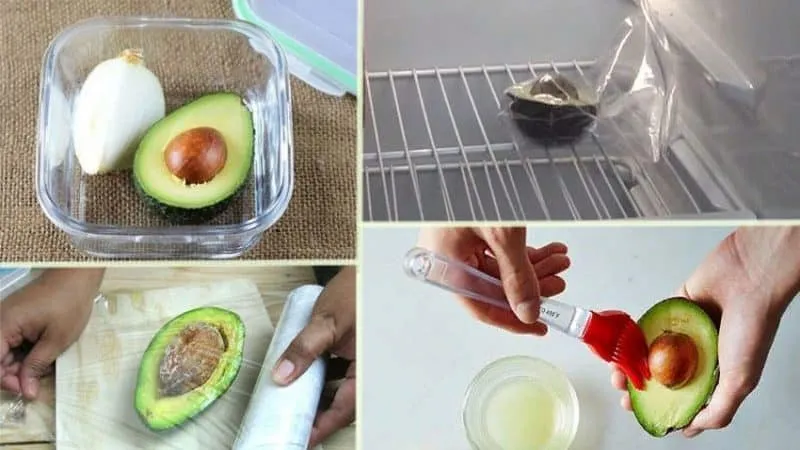
Freezing
Freezing a whole avocado will turn it brown and mushy after thawing. Therefore, before freezing, peel the fruit, remove the pit, and either mash it into a puree or dice it.
Puree
Mash the avocado with a fork or blender, add 1 tbsp of lemon juice, and quickly transfer it to a glass or plastic container — exposure to oxygen causes browning.
Avoid mixing avocados with vegetables like onions or tomatoes. When thawed, these release excess liquid, diluting the puree’s texture. Seal the container tightly, label it, and freeze at -18°C.
Diced
Dice the avocado, sprinkle with lemon or lime juice, and place it in an airtight vacuum-sealed bag. Alternatively, wrap it tightly in cling film, minimising air exposure. Freeze at -18°C.
Note! To thaw, transfer the package from the freezer to the fridge — this takes about an hour. Use thawed avocado within 24 hours. Refreezing will spoil it.
Proper fridge storage
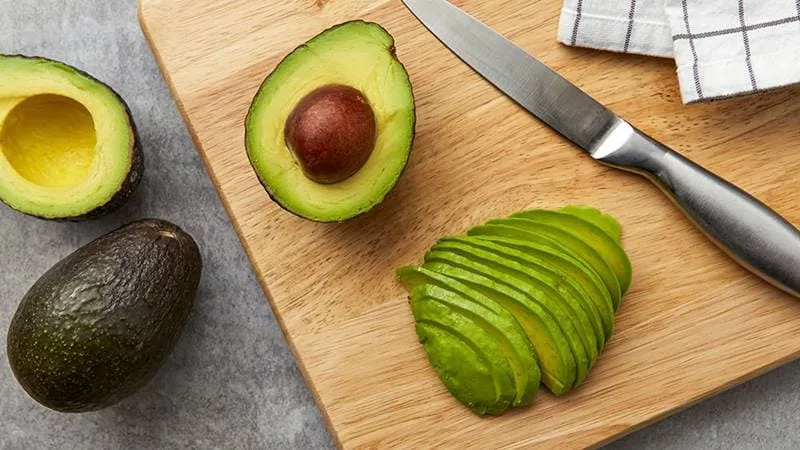
To extend the shelf life of ripe avocados to 6-7 days, store them in the fridge. Follow these guidelines for whole and cut avocados:
- Do not wash whole avocados before refrigerating.
- Store on the top shelf, closest to the freezer.
- Keep away from other fruits and vegetables — they release ethylene, which speeds up spoilage.
- Store halved avocados with the pit intact and skin on, in an airtight container.
- Place a slice of onion in the container to prevent browning.
- Wrap whole or sliced avocados in cling film, use a zip-lock bag, or vacuum-seal to limit air exposure.
- Coat cut flesh with lemon juice, apple cider vinegar, or olive oil to prevent oxidation.
- Do not refrigerate avocado salads for more than 24 hours.
How to store avocados for ripening
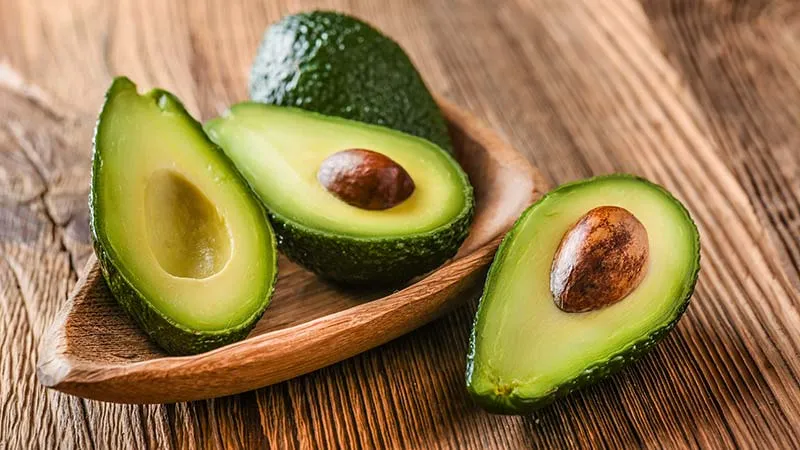
If your avocado is unripe and you need it to ripen faster, try these methods:
- Place the avocado in a paper bag with a ripe apple, banana, or tomato. The ethylene they release speeds up ripening. Paper allows airflow, preventing excess moisture. It should ripen in 2-3 days.
- If you’re in a hurry, wrap the avocado in foil and bake at 200°C for 10-15 minutes. Watch the time — overbaking alters the taste.
- If you’ve already cut an unripe avocado, sprinkle lemon juice on the exposed flesh, press the halves together, wrap tightly in cling film, and refrigerate. Check ripeness every 2-3 days.
Conclusion
Avocados are exotic fruits grown in tropical and subtropical regions. In Europe, they are typically imported unripe to prevent spoilage during transit.
With proper storage, alligator pears will ripen and develop their distinct, rich flavour. Ripe avocados don’t last long, but freezing can help preserve this valuable fruit.
